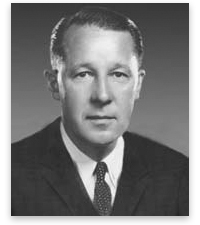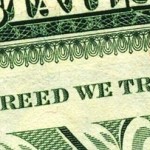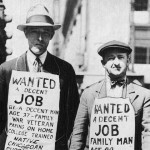Ah, the first post of a fresh new blog! Welcome to The Pickled Pencil!
I’d been tossing around a few different ideas on what would be a good opening article to set us in the right direction, but the Freakonomics Radio episode I stumbled upon the other day settled things for me. Pencils and economics. How perfect! (and how obvious!)
The episode (which you must check out) explores Leonard Read’s famous 1958 essay entitled “I, Pencil.” The host, Stephen Dubner, describes it as a “complex story about how a simple thing comes into being, and what a lowly pencil can teach us about solving some of the world’s hardest problems.” Emphasis on the word “complex.”
Here’s an excerpt from “I, Pencil”:
I, Pencil, am a complex combination of miracles: a tree, zinc, copper, graphite, and so on. But to these miracles which manifest themselves in Nature an even more extraordinary miracle has been added: the configuration of creative human energies—millions of tiny know-hows configurating naturally and spontaneously in response to human necessity and desire and in the absence of any human masterminding!
The essay is, of course, a defense of the free-market. But it is also a wonderful little primer on complex systems, on interdependence, and on how something which can seem so simple is, in fact, intimately connected to a multitude of other things, without which it could not exist.

Economic Connectedness
Advocates of the free-market are often accused of pushing a heartless, individualistic, anti-social economics that is decidedly against the vision of Jesus and the Bible. However, I think “I, Pencil” offers a reminder that while this criticism may apply to some right-wing proponents of capitalism, it doesn’t really tell the whole story or accurately depict what it is many free-market thinkers actually believe.
From Adam Smith onward, free-market economists have not only acknowledged the existence of economic interdependence, but have argued that it makes all of us materially better off. Compare this to the 58% of Michigan voters who supported Bernie Sanders and believe free trade hurts the United States (which, as NPR reports, has had very little to do with the 50-plus year decline of Michigan and Detroit). While we’re on the subject, Donald Bourdeaux over at Cafe Hayek makes a great point, that celebrating a decline in trade is like celebrating a decline in human knowledge and technological know-how.

When it comes to complexity, “I, Pencil” may not go far enough. Now, to be sure, our friend Mr. Pencil has a large and varied family tree which no government office could ever statistically aggregate, and then plan and coordinate. But there’s another type of complexity, a deeper part of the economic system that isn’t directly concerned with physical tools and raw materials but with ever-changing human knowledge, desires, and expectations across time.
The Big Questions
Why, for example, should the pencil be made of wood and not a thousand alternatives? And why cedar and not oak or birch? And what happens if there’s some sort of disaster and the supply of cedar is choked off? Or if the demand for cedar increases because it becomes suddenly fashionable for home construction or use as living room furniture? And how do we communicate this news to everyone who might want to use cedar and make them aware that there are now other, more urgent needs society has for cedar, and then move them to respond? And how do we decide which needs are urgent and which needs are not? And, finally, since all things are connected, how do we make sure this ever-changing knowledge/information (some of which can’t really be put into words or numbers, some of which isn’t even realized consciously) finds its way to consumers who may not even know they’re in need of it (or aren’t in need of it at the present moment)? F. A. Hayek’s 1945 article “The Use of Knowledge in Society” tells us how society solves these problems (and serves as a useful, though more technical, classroom companion to “I, Pencil”).
Hayek’s Answer: The Price System
This post is getting a little long for my taste, so let me finish up with a quote from Hayek and some comments:
Fundamentally, in a system in which the knowledge of the relevant facts is dispersed among many people, prices can act to coordinate the separate actions of different people in the same way as subjective values help the individual coordinate the parts of his plan.
In other words, the price system allows complex societies to coordinate their use of scarce resources across time in deference to what human beings value in the same way your personal value scale helps you choose pancakes or an omelet for breakfast. It brings human needs and wants into relationship with the earth’s scarcity and directs human energies accordingly. And, as Leonard Read would remind us, the price system can only function in a society where peaceful, voluntary trade is permitted, which, in turn, can only exist if property rights are reasonably secure. Coercion, theft, and fraud; inflation, protectionism, and trade manipulation; whether by government or some private cartel, all interfere in the smooth operation of our most incredible example of economic connectedness and spontaneous social order: the price system. Without it, we’d have no pencils (or at least very bad pencils, perhaps evens pickled ones).
Thanks for reading!
P.S. I’d love to hear from anyone who might critique my understanding of Hayek or elaborate a bit on my thoughts.











